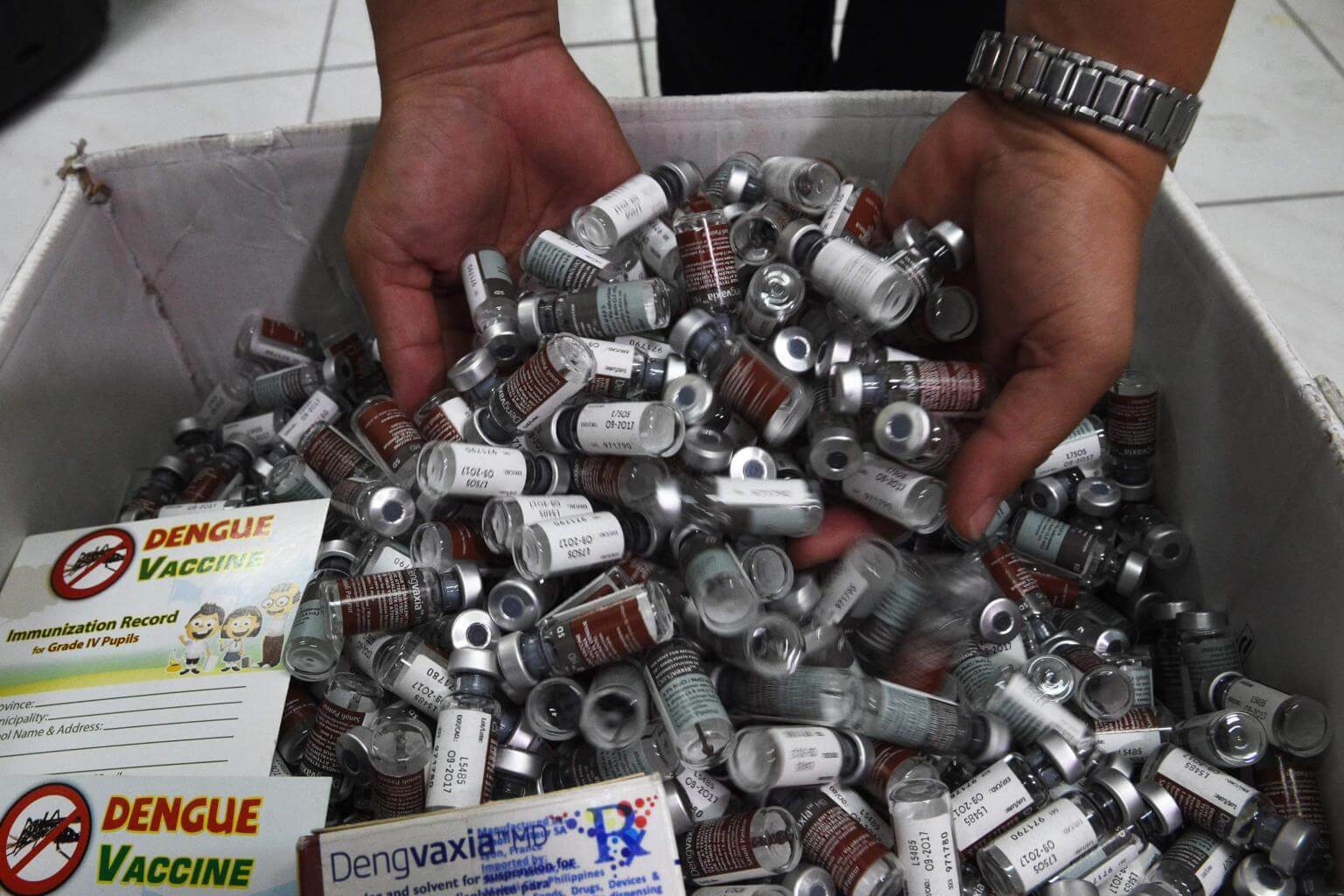Sanofi tells Philippines no refund for used dengue vaccine that could worsen disease symptoms
Sign up now: Get insights on Asia's fast-moving developments

Sanofi last month agreed to reimburse the Philippine government 1.6 billion pesos for leftover doses of Dengvaxia but it later said it would not pay for doses that were already used.
PHOTO: AFP
Follow topic:
MANILA - French pharmaceutical giant Sanofi Pasteur on Monday (Feb 5) declined to refund the Philippines for used vials of Dengvaxia, its controversial vaccine against the mosquito-borne dengue disease, worth about 1.6 billion pesos (S$40 million).
The French pharmaceutical giant said doing so "would imply that the vaccine is ineffective, which is not the case".
"The data remains quite clear that, in absolute terms, dengue vaccination in the Philippines will provide a net reduction in dengue disease, including severe dengue and, thereby, reduce the overall public health burden associated with this disease," it added.
Sanofi had already paid the Philippines 1.16 billion pesos for unused doses of Dengvaxia.
The refund was not due to safety or quality concerns, but merely to show it was cooperating with the health department, it said.
The vaccine sparked public furore here after Sanofi revealed that inoculating children who have not had dengue could lead to a more lethal strain of the disease.
The announcement caused panic among parents of some 830,000 school children vaccinated under the public dengue immunisation programme in 2016 and 2017.
Fears were stoked even further following claims that at least 14 children died soon after they were inoculated.
Health officials said public immunisation programmes for other preventable diseases were suffering in the wake of the panic.
"Every illness now is being attributed to Dengvaxia. This is not helping the situation," Health Secretary Francisco Duque said on Monday.
Dengue, or haemorrhagic fever, the world's most common mosquito-borne virus, infects an estimated 390 million people in more than 120 countries each year, killing more than 25,000, according to the World Health Organisation.
The Philippines has one of the highest dengue fatality rates in the world, with 732 deaths last year.
It launched the world's first public dengue vaccination programme in 2016, but suspended it and stopped the sale of Dengvaxia in December after Sanofi warned that the injections could make symptoms worse for those who contracted the disease for the first time.
It launched the world's first public dengue vaccination programme in 2016, but suspended it and stopped the sale of Dengvaxia in December after Sanofi warned that the injections could make symptoms worse for those who contracted the disease for the first time.
Sanofi shot down calls for it to set up an "indemnity fund" to cover the hospitalisation and treatment of children who could contract severe dengue as a result
"There has been no evidence linking Dengvaxia to any of the 14 deaths. We strongly stand behind the record of safety and efficacy of this product, which is why it's still being used in other countries where it is licensed,"
Sanofi's Asia-Pacific head Thomas Triomphe said at a congressional hearing on Monday.
An independent panel of experts from the Philippine General Hospital found that only three of these deaths had "causal association" with Dengvaxia, and that two could have been due to "vaccine failure".
Six died of other causes, three were considered "coincidental", and there were not enough information on the remaining two.
But the Public Attorney's Office, tasked by the justice department to investigate the vaccine mess, had reported seeing a "bleeding pattern" in the 14 children it autopsied, and suggested these could have been caused by Dengvaxia.
It is now preparing civil cases against Sanofi and health officials behind the vaccination programme on behalf of the parents of one of these children.

